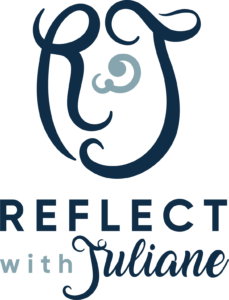Crises describe the loss of mental balance and are characterized by the fact that we do not know whether and how we can overcome them. We quickly feel powerless – and all attempts that are made to change something either go wrong or seem to make the situation worse. Crises exceed our practiced change strategies or coping mechanisms – in such moments it is important to find new and creative ways forward.
But it’s not easy to admit that you’re overwhelmed or in a crisis right now – because we often expect ourselves to always function or feel like we’re failing when we’re so stuck. In such moments we quickly become insecure, anxious and often feel not good enough or even ashamed. Therefore, crises quickly lead to us questioning our decisions, our path in life or ourselves.
Crises have a variety of triggers:
- Surprising, shocking and sometimes traumatic events: The loss of a loved one – through an unexpected separation or sudden death, an accident or violent crime, an illness or similar.
- New stages of life that present us with completely new challenges: such as puberty, the menopause, the beginning of an apprenticeship, entry into working life, separations and deaths, but also new exciting events such as starting a family or a new job.
- Situations in which our dreams, plans and life plans lie in front of us like shards: Financial or material losses if we work towards a goal that doesn’t happen for a long time or if we were wrong about a person or an organization.
And all of these events are bad and very difficult – and yet people have an amazing ability to move on and come to terms with the new situation. Therefore, crises are not permanent – overcoming a crisis or dealing with losses are as individual as we humans are. Professional support or therapy can give you a starting point to deal with the change, give your feelings space and regain courage. It is an opportunity to use the crisis as the first step of a new path and your personal development.
This crisis process can be divided into four phases (according to Verena Knast) – these phases describe which topics are important in the processing – this does not mean that all people will or must go through the phases chronologically.
- Shock:A situation triggers so much chaos and pain in our lives that we don’t want to or can’t admit it and deny the reality.
- Emotions:When we become aware of reality, we experience painful and chaotic emotions – including anger, fear, powerlessness, and threat. Self-doubt, guilt and shame or a feeling of losing control can arise. In part, we also react to these emotions with defence mechanisms.
- Editing:The way out of the crisis begins when we increasingly accept the situation and give it a meaning that we can deal with. We are looking for new, creative solutions and trying out which ones will help in this difficult phase. We still experience strong emotions, but we are no longer so helplessly exposed to them and are increasingly finding ways to deal with them.
- Reorientation and new beginnings: We accept the change or our loss as a new reality and can then turn our attention back to our environment. In this phase we are also open to redesigning our lives, trying out new behaviour patterns, entering into new relationships and developing a new attitude.
Phases of being overwhelmed are often associated with fears and depressive emotions up to and including burnout.




